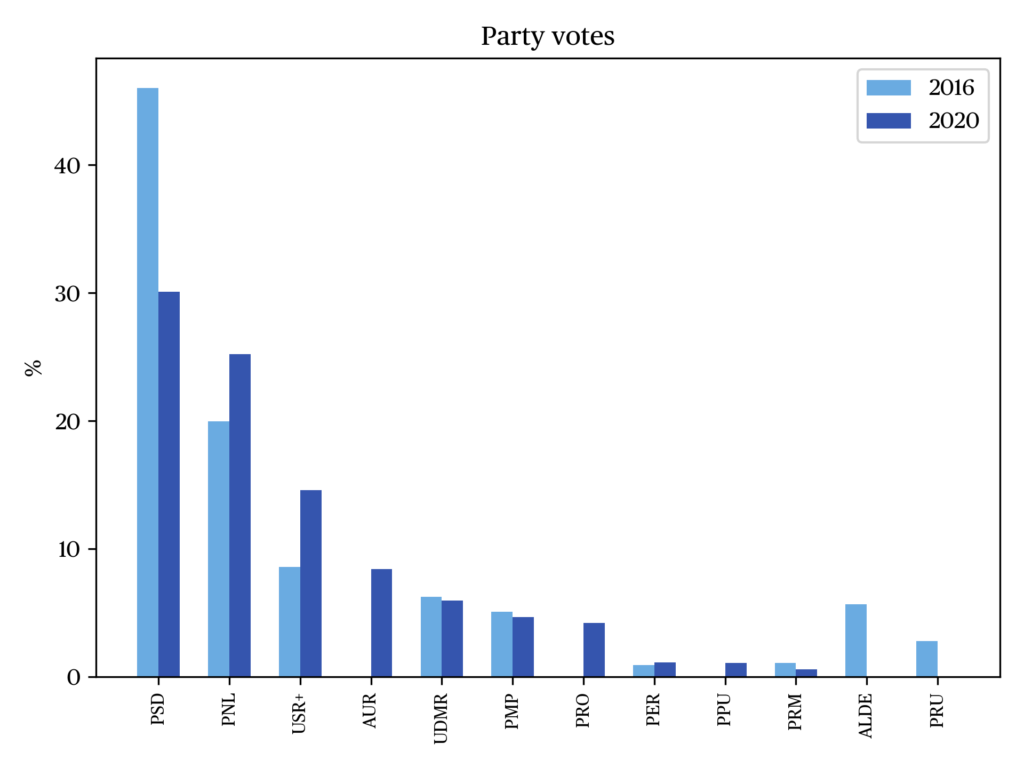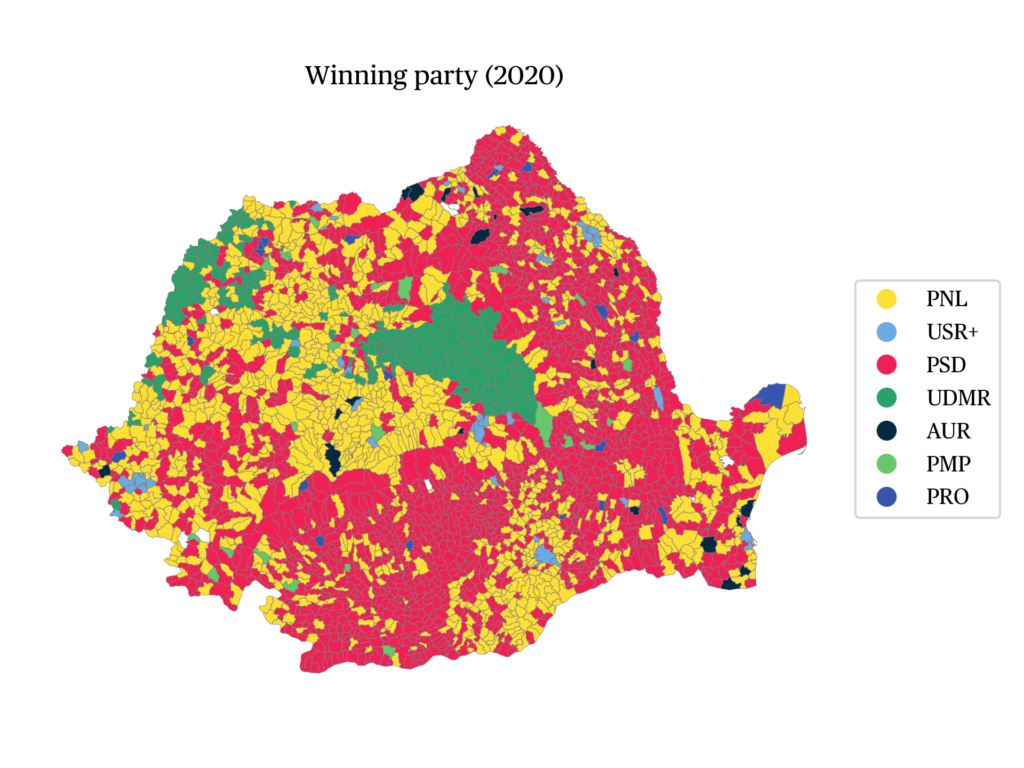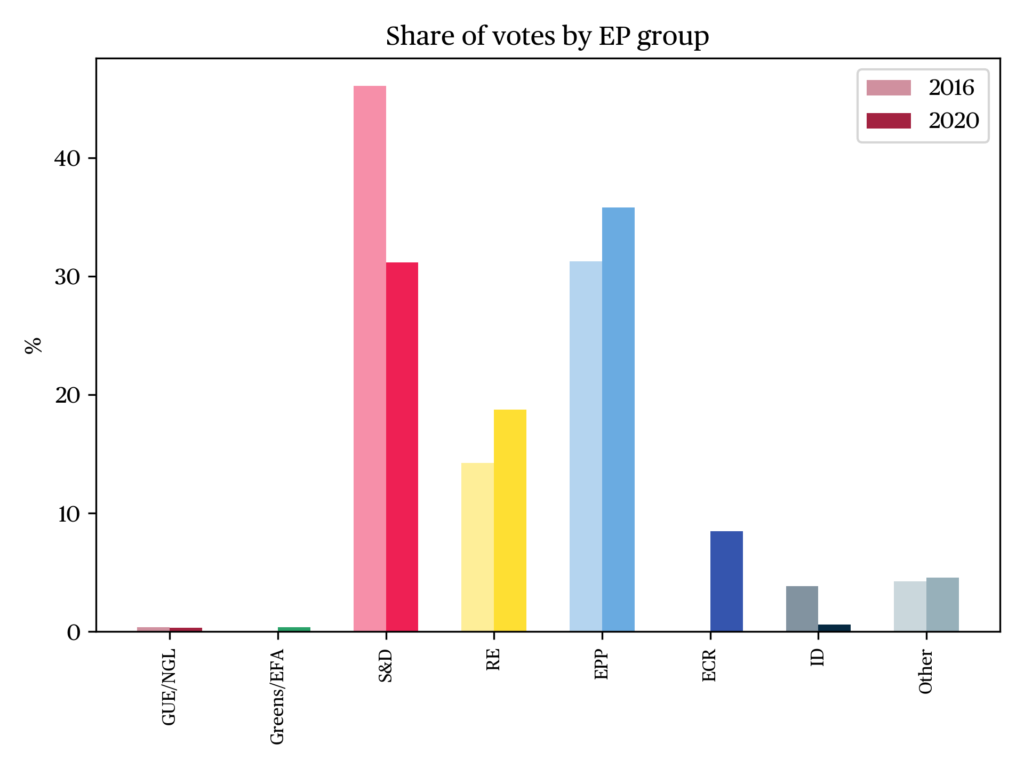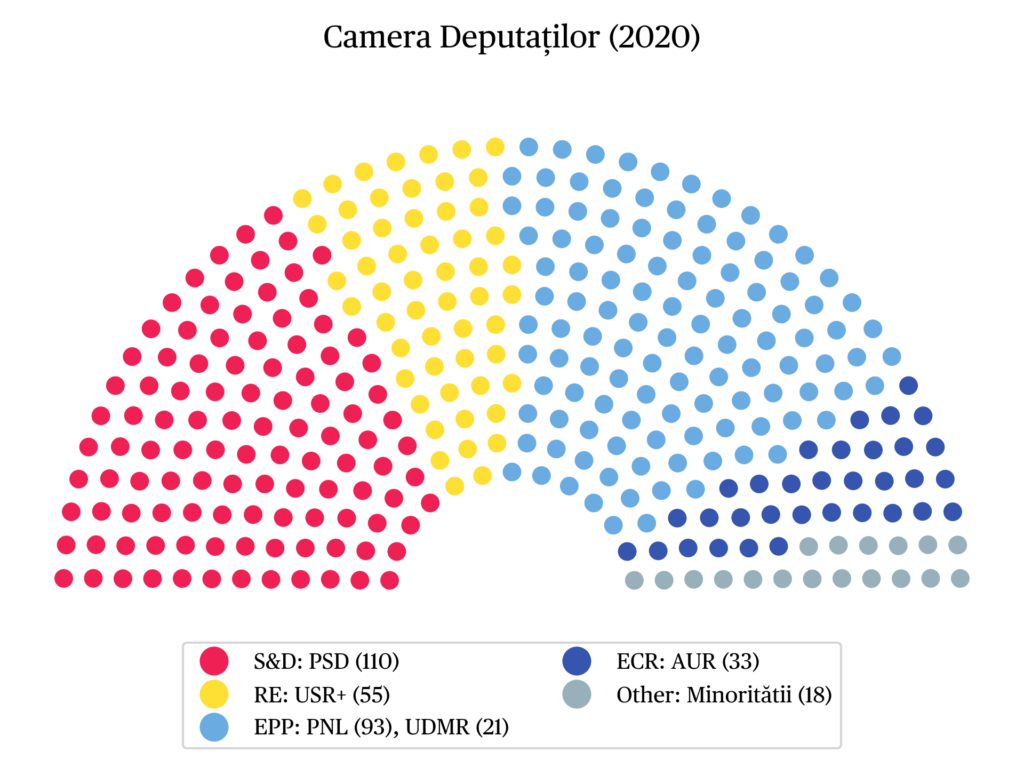Parliamentary Election in Romania, 6 December 2020
Ramona Bloj
Issue
Issue #1Auteurs
Ramona Bloj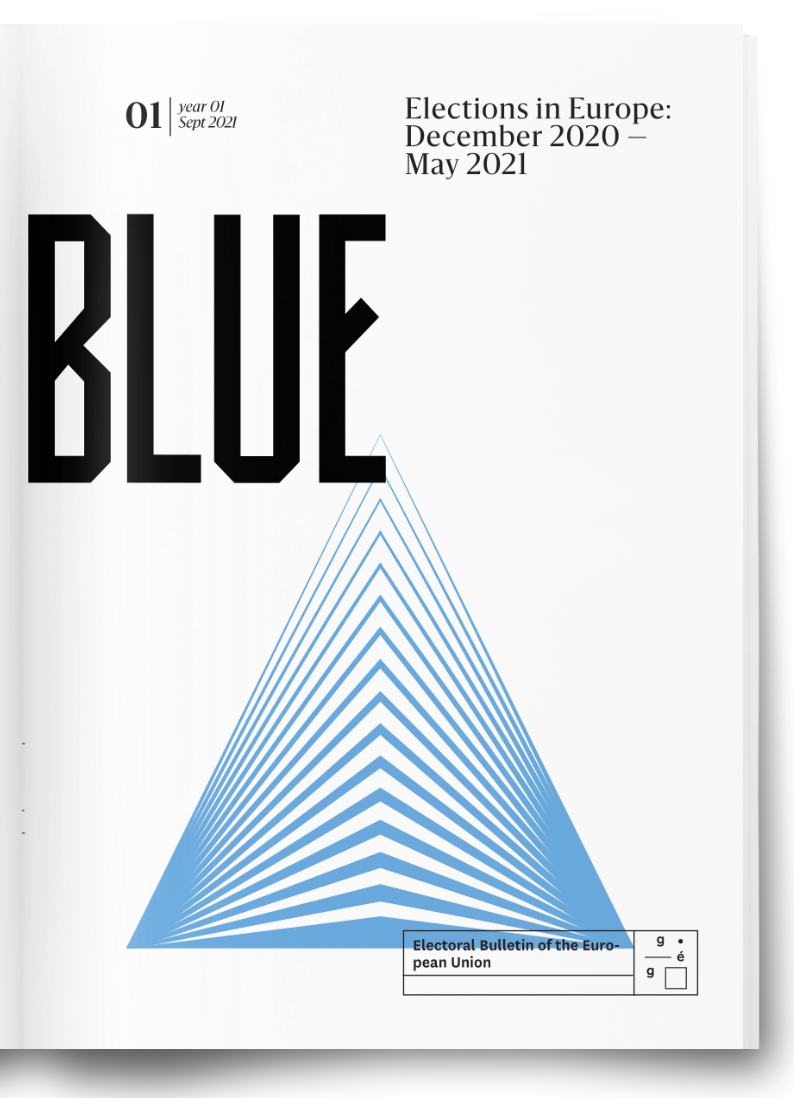
21x29,7cm - 102 pages Issue #1, September 2021 24,00€
Elections in Europe: December 2020 — May 2021
On 6 December, Romanians went to the polls in the parliamentary election to elect both chambers of Parliament (Senat et Camera Deputaţilor). The Social Democratic Party (PSD, S&D, conservative left) came first with 29.32% of the vote, followed by the National Liberal Party (PNL, EPP) with 25.58%. The USR-Plus Alliance (RE) came third with 15.86% of the vote. The surprise of the election was the entry into Parliament of the Alliance for the Unity of Romanians (AUR, ECR, close to the Orthodox Church), which obtained 9.17% of the vote. 1
The election took place against the backdrop of the Covid-19 pandemic. Following a fire in a hospital on 14 November that killed 10 patients, the health system and the endemic corruption were at the heart of the debate in the weeks leading up to the vote. Romania has the lowest level of public health funding in the EU, both per capita (1,029€) and as proportion of GDP (5%). This is compounded by one of the lowest levels of medical staffing, a phenomenon exacerbated by the dynamics of intra-European migration.
The turnout was 31.84%, down from 2016 (39%), but also from the September 2020 local elections (46.02%). Over 250,000 Romanians voted abroad. This is the lowest voting rate in post-communist history, which contrasts notably with the voting presence (51.7%) in the 2019 European elections.
The big surprise of the election was the entry into parliament of the Alliance for the Unity of Romanians (AUR 2 ). Created in September 2019, the AUR advocates the unification of Romania and Moldova, “the protection of the family, the faith and the fatherland.” The political line of this new party is not unlike that of the Polish PiS or the Hungarian Jobbik. It is worth noting that AUR received 30% of the diaspora vote.
Despite the victory of the centre-right coalition, the PSD remains the largest party in the country
Another surprise was the victory of the PSD (S&D). The party won the 2016 parliamentary elections with 45.48% of the vote, and formed a coalition government with the Alliance of Liberals and Democrats (ALDE) and the Magyar Democratic Union of Romania (UDMR, EPP), but the government was toppled on 10 October 2019 following numerous scandals and protests concerning mainly justice and anti-corruption reforms. The PNL then formed a minority government, with the aim of holding early parliamentary elections as soon as possible. However, the Covid-19 pandemic and the health measures implemented to contain the spread of the virus made it impossible to hold the elections before the scheduled date.
The PNL came second with 25.58% of the vote. However, given the possibility of creating a centre-right coalition with the USR-Plus Alliance, the election was seen as a victory. Although remaining the strongest party in parliament, the PSD therefore no longer has the capacity to form a government coalition.
Neither the Pro România party (S&D), created by Victor Ponta (Prime Minister from 2012 to 2015), which aimed to offer a left-wing alternative to the PSD, nor the PMP (People’s Movement Party, EPP) of former President Traian Băsescu managed to exceed the 5% threshold, necessary to enter Parliament.
The UDMR, true to form (since the 1990s, its score has oscillated between 7 and 5.5%), obtained 5.74% of the vote, a slight decrease compared to the 2016 elections (6.19%). The party had a key role in the formation of a government coalition.
It can be noted that the PSD obtained better results than predicted by the polls, while the PNL and the USR-Plus Alliance were well below expectations. The very low turnout partly explains this dynamic: while the more disciplined PSD voters went to the polls, the traditional PNL and USR-Plus Alliance electorate abstained: a more urban, more educated electorate, but also more volatile, and more inclined to sanction the choices of their representatives. It is worth noting that the PNL stood for election after a difficult year in government, especially marked by the fight against the Covid-19 pandemic, which may have alienated many voters — in this case, abstention can be understood as a rejection of the political class as a whole. The USR-Plus Alliance, on the other hand, lacking a strong territorial base, may have been punished for its many internal conflicts.
The legislative and municipal elections in September were the occasion to measure the extent of the crisis of the Social Democratic Party. It still retains a strong territorial hold and can count on a mobilisable electoral base. It is aimed at villages and small towns and at an older electorate. With the implementation of proactive social policies, the PSD responds to a demand for protection that the new government should take into account in its recovery plan.
New national-conservative party AUR enters parliament
The Alliance for the Unity of Romanians (AUR, ECR) was not taken into account by most polls and forecasts. Defining itself as anti-system, although many of its members come from other parties (Mircea Chelaru, PUNR, PRM, PC ; Francisc Tobă, PSD ; Antonio Andrusceac, USR), it organised demonstrations against sanitary measures, the wearing of masks and vaccination. The party obtained less than 1% in the September local elections. Although it was not present in the televised campaign debates, its ability to spread its political message on a very large scale enabled it to reach targeted territories in a capillary way. Despite the pandemic and the health measures, repeating the Brexit strategy, they travelled the country with a golden bus of Trumpian inspiration on which one could read “Dreptate pentru România” (Justice for Romania). Social networks, and especially the Facebook page of party leader George Simion, which has grown in audience since the incident between Romanian activists and members of the Hungarian minority in 2019 around the military cemetery in Valea Auzului, have but amplified the message. It should also be noted that the party’s co-chairman, Claudiu Târziu, had led the Coalition for the Family, which in 2018 supported the Orthodox Church in a campaign to amend the Constitution to define the family as a union between a man and a woman. Following church closures due to the health crisis, some priests encouraged believers to vote for the AUR.
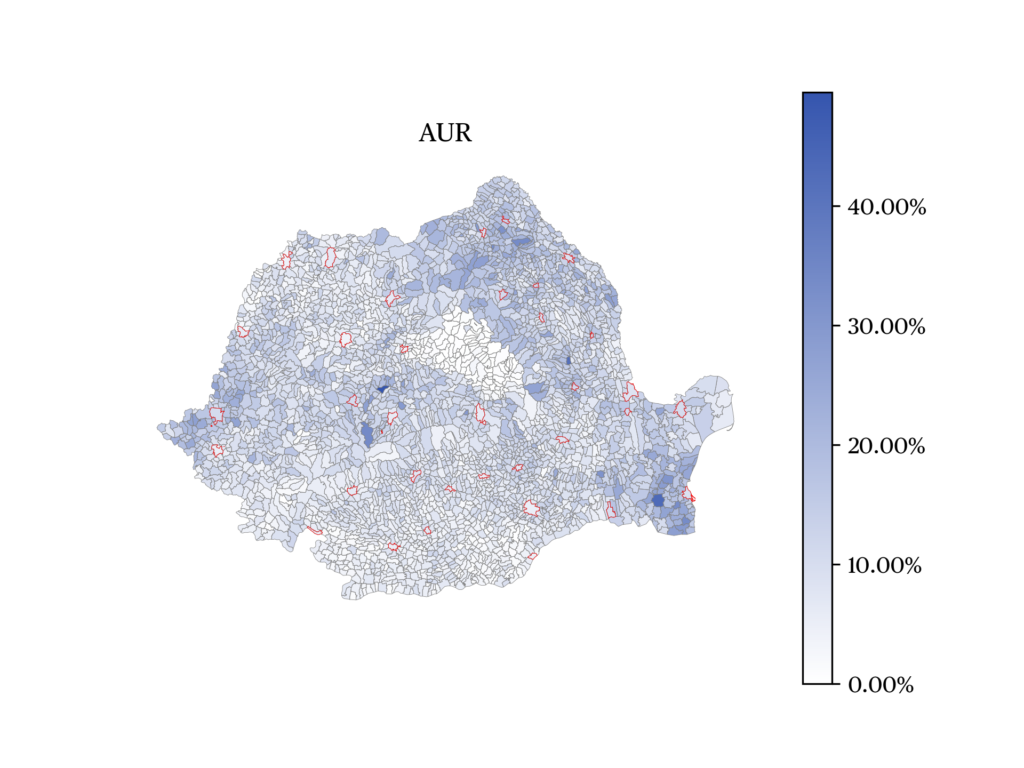
Today, the AUR is the only anti-system party in Parliament. While the PSD can be expected to take advantage of the period in opposition to restructure itself, the Alliance for the Unity of Romanians will capitalise on both the difficulties caused by the pandemic (economic crisis, new health measures, vaccination) and the difficulties of the ruling party to find a compromise. The party announced this spring that they will run in the Moldovan snap elections on 11 July 2021. The structuring opposition of Moldovan political life, which revolves around the pro-Russian/pro-European axis, could lead to a change in the European discourse of the AUR leaders, who will try to adapt to this configuration, while pursuing their unionist objectives.
New centre-right government coalition PNL-USR-UDMR
On 18 December 2020 the PNL, the USR and the UDMR announced the formation of a coalition government led by Florin Cîtu (former Minister of Finance). The PNL got eight ministers (Finance, Home Affairs, Defence, Energy, Agriculture and Rural Development, Labour and Social Welfare, Education, Culture) the USR-Plus seven (Justice, Economy, Entrepreneurship and Tourism, Transport and Infrastructure, Investments and European Projects, Health, Research, Innovation and Digital) and the UDMR three (Water and Forestry, Public Works and Administration, Youth and Sports). Ludovic Orban, the outgoing Prime Minister, gets the presidency of the Chamber of Deputies, and Anca Paliu Dragu (USR-Plus) that of the Senate.
The new government was sworn in on 23 December with 260 votes in favour and 186 against. A fragile coalition, the decision-making process promises to be all but easy.
Romania’s pro-European stance strengthened
Romania’s pro-European position remains intact. The PNL-USR-UDMR government will facilitate dialogue with its European partners and take a firmer stance at the European level regarding Hungary and Poland. Romania’s atlanticism also remains unchanged. However, given the central role of Dacian Cioloș (leader of the Plus party, allied to the UDMR, and chairman of the Renew Europe group) in the European Parliament, Romania can be expected to be more receptive to European initiatives on defence, defence of trade interests, etc.
With the entry in Parliament of the Alliance for the Union of Romanians, which describes itself as being in favour of a Europe of nations, Romania is aligning itself with European trends. A nationalist far-right party is now part of the Romanian political landscape. Its containment will depend largely on the success of the new government, but also on the ability of the Union to stand up to today’s challenges.
The next elections (local, legislative, European and presidential) will take place in 2024. This opens up an opportunity for the implementation of the recovery plan, the objective of which is the convergence with the Western European economies, so that the GDP per capita, in purchasing power parity, may reach 87% of the European average by 2025, but also for the legacy of President Klaus Iohannis, whose term was marked by long periods of cohabitation with the social-democrats.
Bibliography
Eurostat (2021). Government expenditure on health.
Andrei, C. (2020, 9 December). Interviu. George Simion despre cine e în spatele AUR, legionari, Rusia și politicieni. Europa Liberă România.
The Data
Notes
citer l'article
Ramona Bloj, Parliamentary Election in Romania, 6 December 2020, Sep 2021, 21-24.
à lire dans cette issue
voir toute la revue






